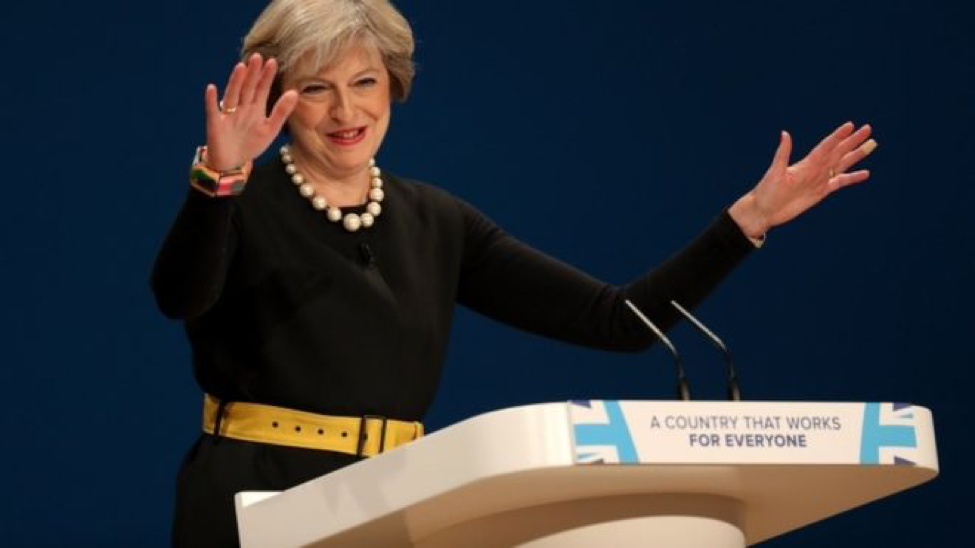By Jep McNair
On election night, as the voting results poured in and showed that Donald Trump was likely to be the next President, the Dow Futures index dropped 750 points. Presumably, the Dow Jones Industrial Average would plummet the next day. Instead, it closed up 250 points and in the days since has hit record highs, breaking 19,000 for the first time. So what happened?
The stock market’s drop on election night wasn’t surprising given Trump’s win. On the campaign trail, he referred to himself as the Brexit candidate, saying that his victory would be akin to “Brexit times five.” Both the pro-Brexit camp and Trump ran campaigns against free trade and immigration, among other similarities. After the pro-Brexit campaign won the nationwide referendum in the United Kingdom (UK), the Dow dropped 900 points in the next two days, while the pound fell to its lowest level since 1985 amid investor’s fears about the toll that limiting trade and immigration would take on the global economy. Even in the U.S. presidential election, the stock market reacted negatively to Trump. During the first presidential debate, the stock market rose significantly as Trump turned in what was perceived to be a rough debate performance, according to analysis by economist Justin Wolfers. The S&P 500 closely tracked the presidential betting odds throughout the debate. So a win by Trump looked likely to cause a dip in the stock market.
There are two reasons for this. First, Trump proposed several policies that would likely hurt the economy. His trade proposals would damage the economy by raising tariffs, which would increase prices for consumers, increase costs for businesses, and potentially lead to trade conflicts. His immigration policies would also hurt the economy, potentially by as much as $1 trillion, which is why Moody’s Analytics said that Clinton would probably create more jobs than Trump. The second reason is because the markets hate uncertainty, and Trump, no matter his policies, brings a lot of uncertainty. Any new president does, which is why the Dow Jones Industrial Average declines an average of 0.9 percent the day after presidential elections. But Trump brings added uncertainty, having an ambiguous ideology that is especially hard to pin down by the fact that he has no political record.
But after election day, the opposite happened. Why? First of all, the economy is still just as strong as it was before the election, as reflected in rising consumer confidence numbers. We also saw the stock market go back up after its Brexit decline. Second, even though many pundits thought the election results would be heavily contested and potentially decided by the U.S. House of Representatives, and one candidate said he may not accept the results, the election ended pretty smoothly. The candidates gave gracious acceptance and concession speeches, restoring some level of certainty or at least calm to the markets. Third, even though Wall Street may not know what to expect from President Trump, there are several reasons to believe that Wall Street might benefit from his presidency. Trump based his campaign on his status as a business executive and fits in with the Wall Street crowd, not the Washington crowd. The same is true for his new Cabinet picks for Treasury Secretary, hedge fund manager Steven Mnuchin, and Commerce Secretary, investor Wilbur Ross. Trump’s win leads businesses to believe that Washington will get rid of many regulations, particularly President Barack Obama’s labor regulations — including the recent increase in overtime pay. Energy regulations will also lessen, according to Trump, potentially increasing oil and gas production by a substantial amount.
But the two biggest regulatory laws from the Obama administration, the Affordable Care Act (Obamacare) and the Dodd-Frank Act, have really infuriated Trump. He selected Tom Price, a staunch Obamacare critic, to head the Department of Health and Human Services. Price has put forth a detailed replacement plan, which will help Trump with his “repeal and replace” campaign promise. Businesses would no longer be under the “employer mandate”, which requires businesses with over 50 employees to provide health insurance that meets Obamacare’s qualifications. Whatever the overall policy implications of repealing Obamacare, businesses will welcome the increased flexibility and decreased costs of no longer being under the mandate. Financial markets welcome Dodd-Frank’s potential repeal as well, since the law placed sweeping new regulations on the financial markets.
So what should we expect the stock market to do going forward? Clearly the stock market is notoriously hard to predict in the short term, and the stock market increases by an average of 7 percent per year over the long term. But there are some upcoming events to watch out for: The Federal Reserve increased interest rates two days ago and is expected to implement additional raises soon. Higher interest rates decrease stocks’ value, and the markets did fall after the recent announcement. The stock market will likely go up if Trump passes his infrastructure plan, which would spend up to $1 trillion within the first few months of his term. But Trump is an unpredictable President-elect, and the stock market is an unpredictable exchange, one that’s determined by forces outside of the president’s control.


